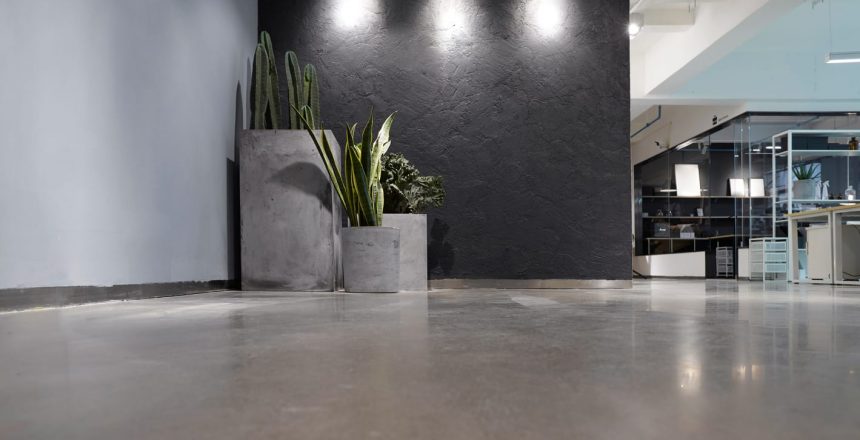Years ago, you may have had a concrete floor that looked like it was nearing the end of its run. Instead, you brought new life to it by applying a concrete sealer to help it last even longer. However, those same concrete floors are again showing signs of major wear, and you are now wondering if it is the right time to reseal the concrete.
Many also wonder about maintaining their concrete floor with routine resealing, but they are unsure if it is necessary, and if so, how often they should reseal concrete flooring. Some professionals might suggest that concrete floorings should be resealed every 2-5 years, but that depends on a couple different factors.
Businesses and buildings will require different timeframes for resealing due in part to the amount of traffic that floor experiences. Both foot traffic and machinery traffic can cause wear patterns. Some environments also break down sealants faster, particularly those where the flooring is exposed to chemical agents. Signs of cracking, staining, or other damage are indications that put your flooring’s lifespan at risk.
Planning can help limit the amount of damage that your flooring receives. Periodically resealing concrete floors is important for all types of buildings, whether they be warehouses, manufacturing spaces, commercial buildings, offices, kitchens, or living areas. The sealant not only builds up the floor’s durability, but also extends the life of the floor by helping it resist damage from spills or changes in weather. Resealing concrete also helps maintain the flooring’s color.
The types of sealers can also play an important role in your flooring’s lifespan. Penetrating sealers chemically react to the concrete and will last the longest. These types of sealers are typically applied immediately after the slab is poured, but other reactive sealers need to wait until the concrete is fully cured.
Acrylic sealers will not last as long as penetrative sealers, but provide more options when it comes to designs and color. These floors have a glossier finish. Epoxies and urethanes are an alternative to acrylics, also offering a glossy finish with an enhanced color design. Although it comes at a higher price, epoxies and urethanes have similar performance to penetrative sealers in that they can last up to 10 years.
The resealing process does not take terribly long. You can typically walk on a resealed surface 12 hours after its application, but professionals will advise that you allow up to 48 hours for the sealant to harden.
DC Byers will help ensure that your concrete floor will stand out with no blemishes and repair the areas that need it before resealing. Once we locate the issue, we can grind out the failing concrete and replace it with concrete that matches the existing slab.
To get a quote on any of your concrete repair needs, call DC Byers Company/Grand Rapids today at (616) 538-7300. Our experience and expertise allow us to assess the damage correctly and plan how to perform the repairs to allow you to use your space properly.
For concrete restoration and repair, DC Byers Company/Grand Rapids looks at all the factors contributing to the deterioration of the concrete. By understanding the underlying problems, we can start working on the most satisfying and cost-effective solutions.
